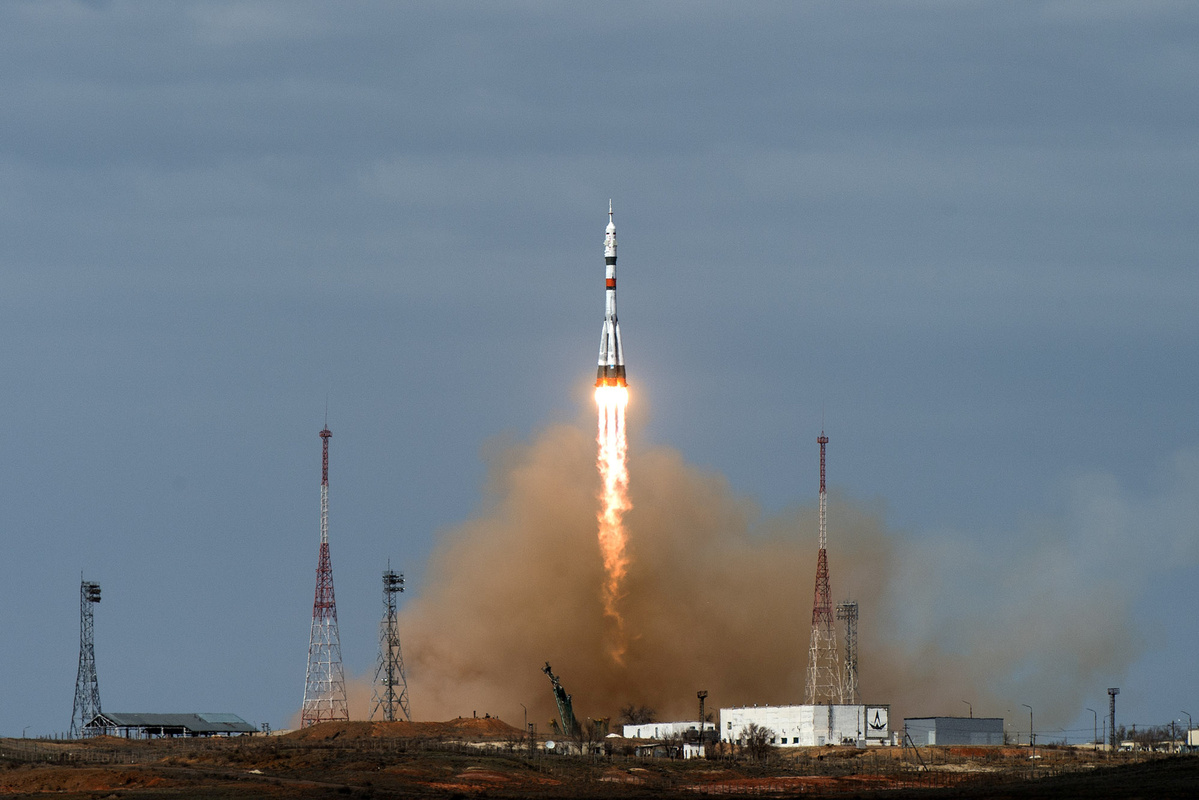Russia and US look to revive space links
By REN QI | China Daily Global | Updated: 2020-05-18 09:17

The freeze in relations between the Russian and the US space sectors may be thawing as both sides took key steps on Saturday.
The Russian state space corporation, Roscosmos, has sent an official invitation to the top officials of the US National Aeronautics and Space Administration, or NASA, to visit Russia, Russia's space agency said, citing Sergey Savelyev, its deputy director general for international cooperation.
Savelyev said Roscosmos would like to discuss a wide range of projects, and is looking forward to a positive response from its US counterpart.
"We formally invited the top officials of NASA to come to our country, but we have received no reply so far. I hope that we will receive it and that it will be positive."
The relationship has been rocky since NASA administrator Jim Bridenstine rescinded an invitation to Roscosmos head Dmitry Rogozin to visit the United States in January last year due to the mounting criticism from Capitol Hill.
Bridenstine said later that the invitation was an attempt to maintain good relations with his Russian counterpart, but was blasted by some US senators as Rogozin was put on a sanctions list by the Obama administration in 2014 over Russia's military actions in Ukraine when he was a deputy prime minister.
NASA on Friday announced the creation of the Artemis Accords, a new set of standards on how to explore the Moon.
Reuters reported that NASA hoped that other countries would agree to the terms, which set out how humanity will act on the Moon, including how to mine resources from the lunar surface and ways to protect the heritage Apollo sites.
The accords were introduced after President Donald Trump signed an executive order allowing the US to mine resources from the Moon and other bodies in early April, arguing that it does not conflict with the Outer Space Treaty, a deal signed by the US, the United Kingdom and the Soviet Union in 1967 that forms the basis of international space law.
According to Bridenstine, although some countries such as Japan and Canada are interested in this approach, "Russia was not pleased with the idea of the Artemis Accords", and Rogozin argued that "the principle of invasion is the same, whether it be the Moon or Iraq".
Kremlin spokesman Dmitry Peskov also said that the Moon exploration projects require a thorough review from the standpoint of the international law.
Positive answer
Acting associate administrator for NASA's office of international and interagency relations Michael Gold rejected media reports that US was not willing to include Russia in its draft agreement on Moon exploration.
"I think it's unfortunate that there were a lot of media leaks that did not properly describe what the Artemis Accords were, so I'm not surprised at some of those reactions," he said.
Gold gave a positive answer to Russian media during an interview on whether the US viewed Russia as its partner in Moon exploration, and whether Moscow could count on signing an agreement with Washington within the framework of the Artemis Accords if it wanted so.
"I'm very hopeful that now that we come out and have described what's in these accords and that they are grounded on the Outer Space Treaty, that Russia will be able to take a hard look at this kind of thing now," Gold said.
























